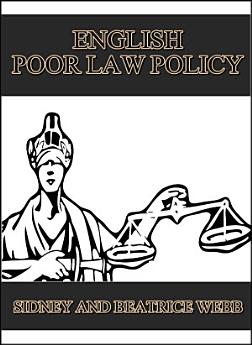English Poor Law Policy
About this ebook
The extent, the complication, and what may be thought the aridity of this analysis may probably daunt many who ought to read it. But if they will persevere, they will find that the severe and exact chronological record through which they are taken with regard to each class of paupers—the Able-bodied, the Vagrants, the Sick, the Women, the Children, the Aged, etc.—will presently reveal to them the current in which they are themselves moving, the stream of tendencies down which we are all floating, with a clearness of comprehension not otherwise to be obtained. It is here not a question of whether we approve of this evolution of policy, or of whether we should seek to promote or to resist it, but merely of what exactly it has been, and therefore now is.
In view of the attention given to the Poor Law by many writers, it is, perhaps, a matter for surprise, that no such chronological analysis of policy has before been undertaken. Except in regard to a few special matters, it is impossible, in any published work, to trace the exact course of development of English Poor Law policy since the great revolution of 1834. The most systematic books upon the English Poor Law System, such as those by Dr. Aschrott and Monsieur Èmile Chevalier, have confined themselves, in the main, to a description of the contemporary state of things, with only comparatively brief and general accounts of how it came about. The popular manuals, such as the admirable little book of the Rev. T. W. Fowle, can naturally only give such scraps of history as are current. Even Mr. Mackay, in adding a third volume to Sir George Nicholls' History of the English Poor Law, has limited himself to a series of essays on particular points, without attempting any but the briefest chronological analysis of the evolution of policy of the Central Authority since 1834, upon which the whole administration of the Boards of Guardians depends.
It is easy to understand this general reluctance to work out, from the materials themselves, the Poor Law history of the last three-quarters of a century. As with all nineteenth-century history, the extent, the variety, and the intricacy of the various sources are simply overwhelming. The number of official records—Statutes, Orders, Circulars, Minutes, Reports, Letters, etc.—dealt with for the present small volume (although we have confined ourselves in the main to the publications of the Central Authority itself, and have not been able to consult the manuscript records and letter-books of more than a score of the Boards of Guardians) runs into, literally, tens of thousands.








